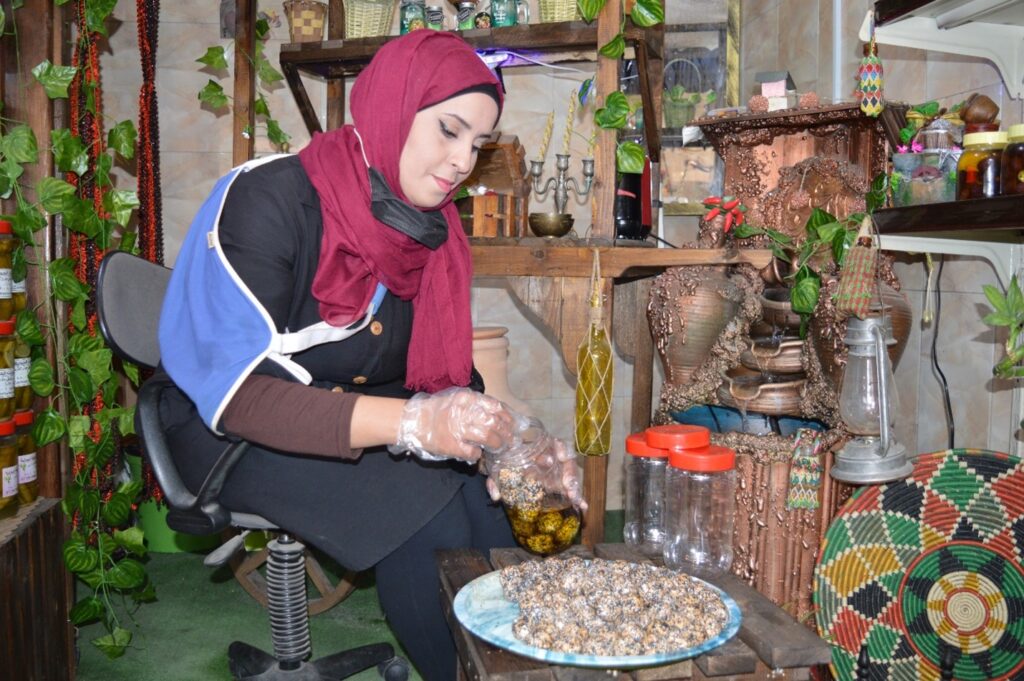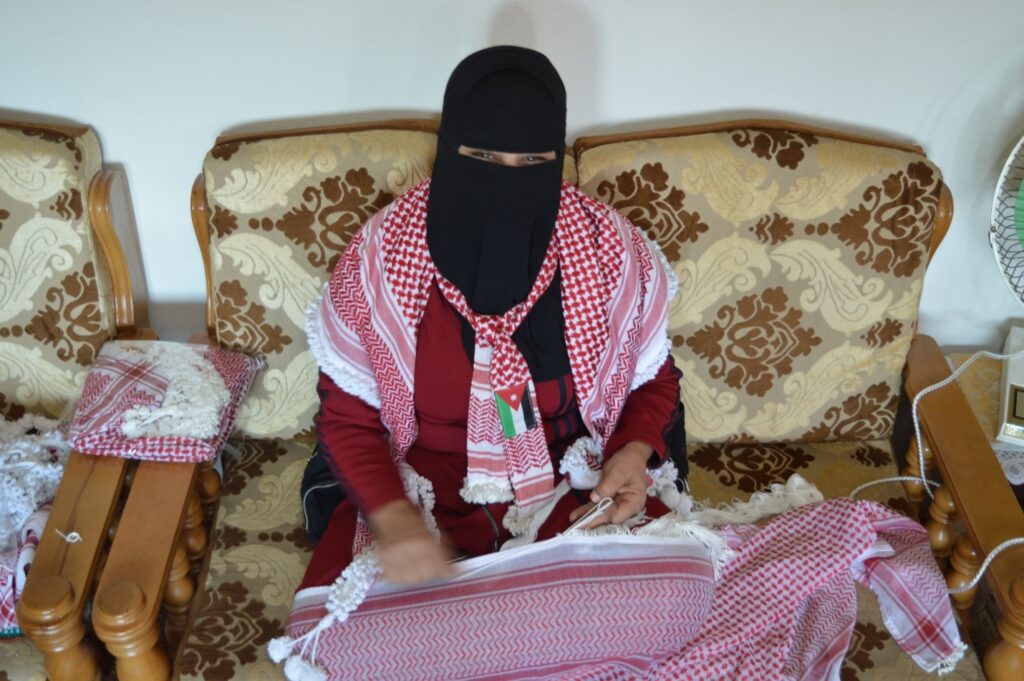Jordanian women and Syrian refugees living in Jordan are pursuing entrepreneurship and establishing home-based businesses to support their households.
When Abeer, a 36-year-old Jordanian woman, was widowed at a young age, she suddenly had four children depending entirely on her. With a passion for pickling, she saw an opportunity to take control of her family’s financial future. Abeer started a business at home, making pickled stuffed eggplants (Makdous), labaneh, and different types of pickles.
Abeer knew how to make a great product but struggled to build her business due to the fees and process of registration and licensing. Registration is an important step to bringing home-based businesses in line with government regulations and bringing business owners into the formal Jordanian economy.
“Before registering my business, I was worried and always on my toes,” said Abeer. “I was instantly relieved when Blumont took my hand and helped me launch my business properly.”
With Blumont’s support through the UNHCR-funded Jordan Livelihoods Project, Abeer was able to get a license and register at the Ministry of Industry and Trade, enabling her to trade with other businesses and diversify her markets.

Abeer makes her pickle jars at home
“I now supply my products to supermarkets, restaurants, and dairy shops as they refuse to deal with food suppliers that are not registered. Understanding the law made me more confident,” she said.
Home-based businesses play an important role in Jordan’s economy. Outside of the public sector, micro- and small enterprises, including home-based businesses, are a primary driver of income and growth. The Jordan Livelihoods Project is helping entrepreneurs build skills and expand their markets, while bringing their businesses into the formal economy. Since 2019, Blumont has helped more than 220 Jordanian and Syrian refugee-owned home-based businesses become formally registered and/or licensed in Jordan.
In addition to legal support, the program provides home-based business owners with training focused on skills such as operations; product development and creative design; marketing; financial literacy; and customer service.
Ola, who has been sewing tassels on the sides of Kofiehs ever since she can remember, was able to combine her creativity with her new business acumen to expand her home-based sewing business. Ola turned her passion into a source of income, and with a seed grant to purchase materials and a connection to Souq Fann, a digital merchandise shop, she is reaching new customers across the kingdom.

Ola sewing Kofiehs at home
With the expanded demand, Ola has hired 10 women to work with her to create products.
“The moment I saw my products live on the Souq Fann website, I was overwhelmed with joy and pride. It has helped us achieve financial self-sufficiency,” she said. “But helping other women and teaching them how be professionals in such craftsmanship is my true achievement.”
With business skills and newfound confidence, Abeer and Ola are continuing to look for new opportunities to do even more.
“Without this support, I would have been lost with no proper direction at how to manage my business. I have become a businesswoman,” said Abeer. “I started a new line of business by making homemade meals and sell them across Mafraq city. Hopefully, we will expand and open a shop and deliver products across governorates of Jordan even outside of Jordan… I am always ambitious!”
In 2021, the Jordan Livelihoods Project is working with an additional 70 formal home-based businesses in refugee-hosting urban communities of Amman, Irbid, Mafraq, and Ma’an Governorates, as well as improved livelihoods potential for Syrian refugees by supporting 20 Syrian-owned home-based-businesses and offering vocational training and career counseling services at Za’atari Camp.
[embedyt] https://www.youtube.com/watch?v=muChvT20-u0[/embedyt]
Caroline Haddad, Blumont’s Jordan Country Director, explains the role the Jordan Livelihoods Project plays in bringing home-based business into the formal economy and build their business
***
READ MORE
Team Perspective: Living and working at Za’atari Camp



